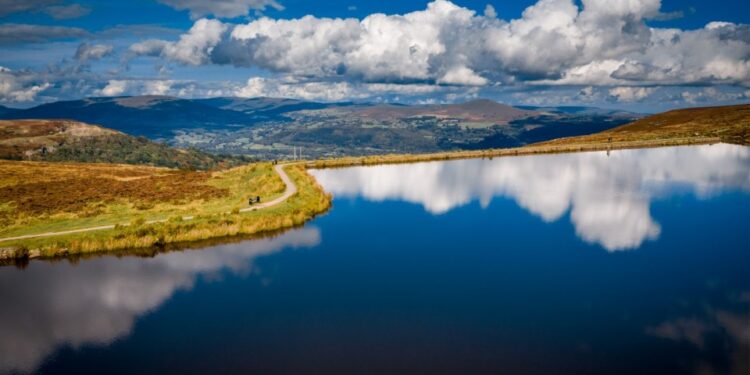LOCALS in a beloved UK beauty spot have voiced their fears over plans to introduce a nightly tourist tax.
The picturesque mountains, limestone caves, and cascading waterfalls of Brecon Beacons have long been a magnet for visitors from around the globe.
The Welsh government is planning to roll out a new ‘tourist tax’ across the nation, which has sparked fears over driving away visitors and the knock-on impact on local trade.
The charge, which would be £1.25 per person per night for hotels, B&Bs, and self-catering accommodation, and 75p for campsites, could add £35 for a family of four staying a week in Wales.
Critics say this will drive visitors away, crippling the rural economy.
Ashford Price from National Showcaves Centre told Sky News: “In an area like this, all we’ve got is tourism and farming – there is nothing else. It will be an absolute catastrophe.”
Ashford, who also represents the Welsh Association of Visitor Attractions, described the tax as “quite high” and pointed out the lack of exemptions for children.
He said: “For a family, that will add roughly £35, £40 a week. If you’re staying two weeks, as many people do, that’s £70 on top of your bill.
“It’s utter insanity to put Wales at such a disadvantage. At a time when everybody’s earnings are struggling, this tax will hit hard.”
He also criticised the Welsh government for failing to see how “demoralised people feel”.
Ashford claims he’s “already cancelled a £1.5m investment” and says other attractions are doing the same.
LOCAL OUTRAGE
In the nearby village of Penycae, pub landlord Anthony Christopher expressed frustration with what he called “a bunch of weasels” in government.
He said: “We’re a small family business, and all these extra taxes are taking away the will to do anything else.”
He pointed out the existing strain of high national insurance contributions and VAT, claiming adding another tax would be a “disaster”.
Anthony, who has just completed work on a 14-bedroom hotel due to open in January, said he may have reconsidered the project had he known the tax was coming.
Tourism makes up 11% of all jobs in Wales, but an impact report commissioned by the Welsh government warns the tax could cost the sector 730 jobs and wipe out £47.5m from the economy.
Locals say the government’s reasoning – that the tax will fund better infrastructure like public toilets and car parks – doesn’t add up.
“It’s a huge risk,” Ashford said. “Even Welsh people will be clobbered by this tax.”
TOURISM TAX TREND
The Welsh government insists the tax, similar to levies in European cities like Venice and rural France, will boost tourism by reinvesting in the industry.
Mark Drakeford, the Welsh finance secretary, said: “During a period of sustained austerity of the sort we’ve seen over the last 14 years, local authorities inevitably end up focusing their spend on those things for which they’ve got statutory obligations – social care, education and so on,” said Finance Secretary Mark Drakeford.
“That has meant there’s been a reduction in the amount of money available for local authorities to invest in infrastructure that makes them successful places for tourists to visit.
“This is a way of collecting a very small contribution from every one of us who makes a visit to be reinvested in the conditions that make for that visit to be a success.
“It’s money that would be reinvested in the tourism industry, for example, clean beaches and safe footpaths and car parks and public toilets.”
But critics point out that tourism taxes abroad are often balanced by lower VAT rates, unlike the 20% VAT paid in the UK.
With York and other UK cities also considering similar levies, businesses warn the trend could hit holidaymakers already struggling with the cost of living.
For now, the people of Bannau Brycheiniog fear their slice of paradise may soon become too pricey for visitors – and their communities could pay the ultimate price.
Tourist tax across the UK
Manchester now has a £1 nightly charge for hotel stays.
Birmingham and Cornwall are proposing a £1-a-night tax, while Edinburgh is looking at £14 a night.
Cambridge City Council had been debating a £2 charge per person, per night, to rise to £3
While Wales is looking to charge up to £21 a night, and London £60.
Liverpool is said to charge 1.6% of the accomodation bill.
But Liverpool councils are looking to raise the cost to 5.5% over the next five years.








